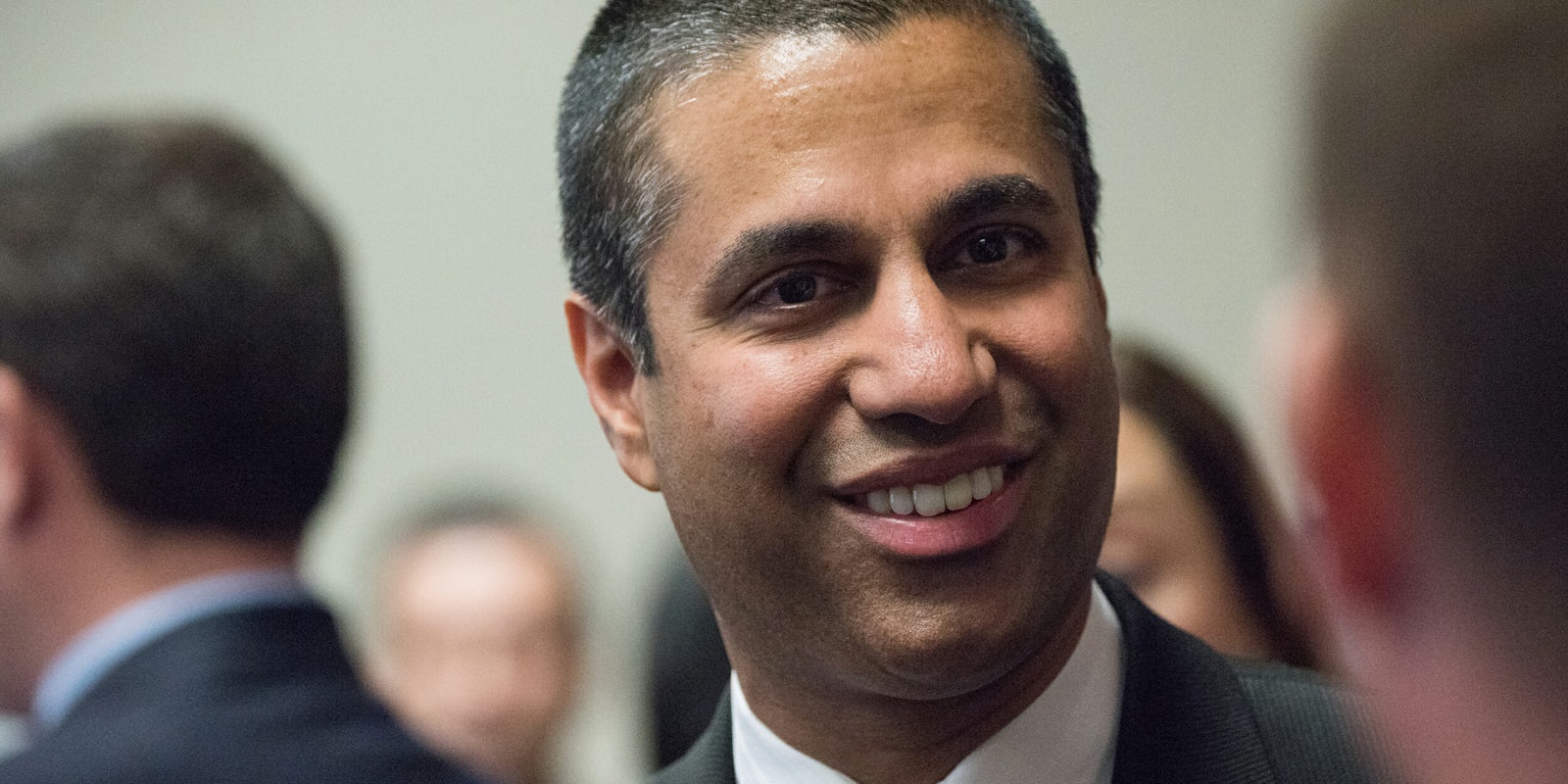The Federal Communications Commission (FCC) is expected to reclassify smartphone data as broadband in February, a move that some critics say will make it more difficult for people to get high-speed internet.
The FCC defines a broadband connection as a minimum of 25Mbps download speeds and 3Mbps upload speeds. The new rules would include cell phone data coverage, Motherboard reports. The move comes on the heels of the FCC voting, down party lines, to repeal net neutrality rules.
However, critics say the move would make it harder for Americans to get high-speed internet and could “exacerbate the existing digital divide.” For example, cell phone internet can be costly, has data limits, and is slower than traditional high-speed internet. Essentially, the new rules would lower the standards of high-speed broadband service to include mobile service as a home connection, which could mean more rural municipalities would miss out on funding or other investments, critics say.
“A home connection to fast, affordable, and reliable broadband is essential for families across the country,” Deb Socia, executive director of Next Century Cities, a group representing municipalities seeking expanded local broadband access, said in a statement. “Lowering the broadband standard would prevent Americans from accessing the full economic, educational, and social benefits of the internet.”
Ten groups, including Next Century Cities, have promoted a way to highlight the limitations of mobile internet by creating the #MobileOnly Challenge. The idea is to have someone spend one day accessing the internet only through their mobile device and document their experiences. The challenge will run throughout January, just before the FCC’s expected vote in early February.
Two Democratic commissioners at the FCC, Mignon Clyburn and Jessica Rosenworcel, will reportedly be participating in the challenge.
“Contrary to those who claim that mobile broadband services provide effective competitive pressure on fixed broadband providers, promoting deployment of mobile broadband services alone is not sufficient to bridge digital divides in underserved rural and urban communities,” Clyburn said in a statement. “By standing together through this movement, we will demonstrate why it is so essential for all Americans to have access to a robust fixed broadband connection.”
You can read more about the proposal over at Motherboard.


